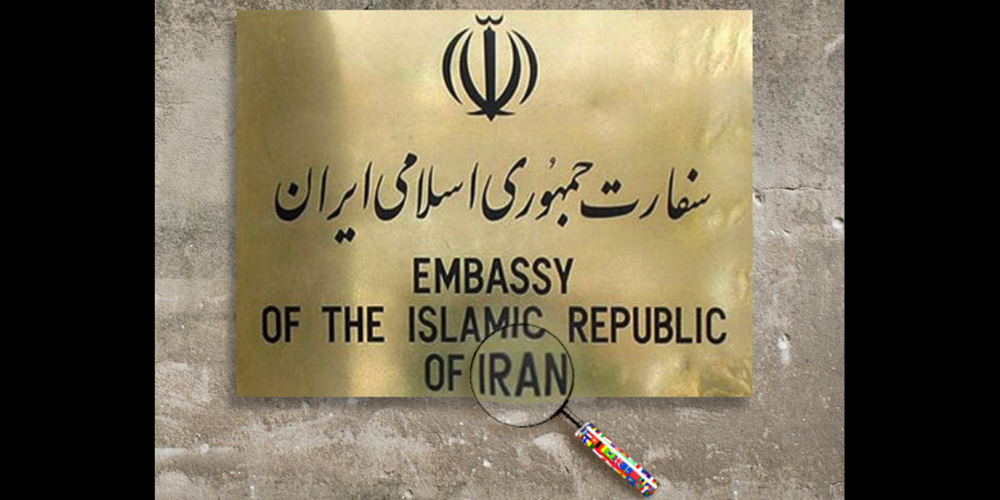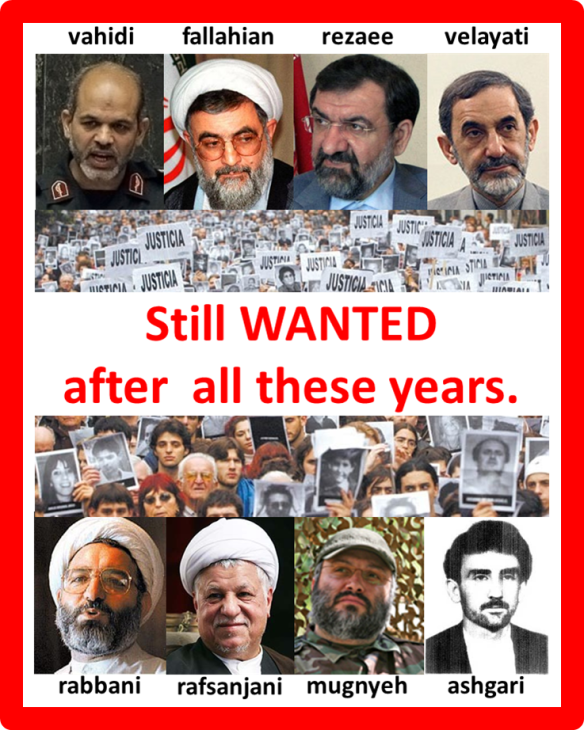As we’re approaching the 20th anniversary of the AMIA (The Mutual Society of Argentina and Israel) community center bombing in Buenos Aires (July 18th, 1994), the survivors and families of victims are still searching for the truth and retribution for the 85 lives and hundreds of injured.
The investigation pointed towards Hezbollah and more importantly, the Iranian regime at the time all the way up to Ali Akbar Hashemi Rafsanjani, Iran’s former president.
The prosecution issued warrants for key Hezbollah members as well as Rafsanjani, Hade Soleimanpour (Iran’s ambassador to Argentina) and Mohsen Rabbani (Iran’s cultural attaché in Argentina). Only Soleimanpour underwent questioning and was released after offering his testimony. Rabbani disappeared and re-emerged in Tehran and Rafsanjani simply denied any involvement by himself or by Iran.
The list of Iranian diplomats who were suspected of being involved kept growing: Interpol published names of six individuals (out of nine) who were officially accused for their role in the terrorist attack. These include Ahmad Vahidi (IRGC commander and later appointed as Iran’s defense minister), Ali Fallahian (Iranian intelligence minister), Imad Mughniyah (founding member of Hezbollah), Mohsen Rabbani, Ahmad Reza Asghari (Iranian diplomat), Mohasen Rezaee (Iranian politician and presidential candidate). Other suspects included Ali Akbar Velayati (presidential candidate and Supreme Leader Khamenei’s right hand man). All are high ranking diplomats who would rise even higher over time.
Iran vehemently objected to the notion of arresting its politicians, and so a makeshift solution was conceived: A truth Commission.
Last year, the government of Argentina announced it had signed a memorandum with Iran in order to investigate the AMIA bombing further. It basically meant that Argentina and Iran would now investigate together Iran’s participation in the bombing. The memorandum overturned decisions made by Argentina’s courts and prompted a lot of criticism by the families of the victims as well as US senators who wrote a letter to President Christina Kirschner, saying that they found the agreement “disturbing“.
But, last week a court decision on the matter was given: An appeals court in Argentina declared the deal as unconstitutional but this decision is not yet final since the government is planning to appeal this decision to the high court.
In any case, the AMIA bombing represents a pure example of Iran’s shadow diplomacy: One hand places the bomb and kills people while the other hand diplomatically tries to wash away any connections. And to make matters more complicated, Iranian diplomats sign a deal with Argentina which allows the prime suspect to become a part of the investigation! I can understand why the Iranians acted the way they did…can’t say I understand the motives of the Argentinians.
other posts on argentina: irans-ongoing-tango-with-argentina and iran-emerging-from-the-shadows-in-argentina



